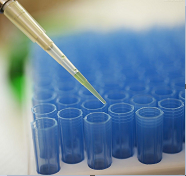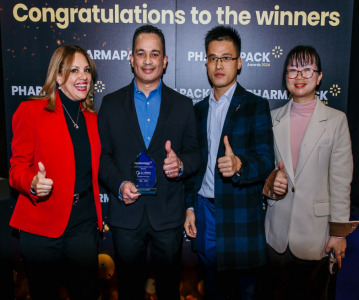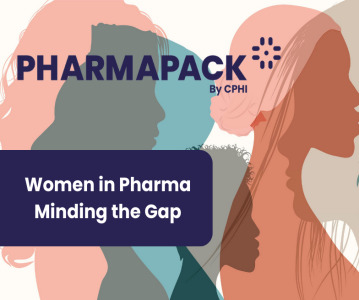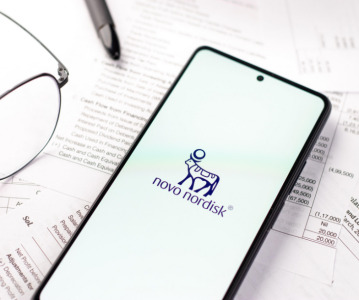New monoclonal antibody developed that can target proteins inside cancer cells

Researchers have discovered a unique monoclonal antibody that can effectively reach inside a cancer cell, a key goal for these important anticancer agents, since most proteins that cause cancer or are associated with cancer are buried inside cancer cells.
Researchers have discovered a unique monoclonal antibody that can effectively reach inside a cancer cell, a key goal for these important anticancer agents, since most proteins that cause cancer or are associated with cancer are buried inside cancer cells. Scientists from Memorial Sloan-Kettering Cancer Center and Eureka Therapeutics have collaborated to create the new human monoclonal antibody, which targets a protein associated with many types of cancer and is of great interest to cancer researchers.
Unlike other human therapeutic monoclonal antibodies, which can target only proteins that remain on the outside of cancer cells, the new monoclonal antibody, called ESK1, targets a protein that resides on the inside of the cell.
ESK1 is directed at a protein called WT1, which is overexpressed in a range of leukemias and other cancers including myeloma and breast, ovarian, and colorectal cancers. WT1 is a high priority target for cancer drugs because it is an oncogenic protein, meaning that it supports the formation of cancer. In addition, it is found in few healthy cells, so there are less likely to be side effects from drugs that target it.
"This is a new approach for attacking WT1, an important cancer target, with an antibody therapy. This is something that was previously not possible," said David A. Scheinberg, MD, PhD, Chair of the Sloan-Kettering Institute's Molecular Pharmacology and Chemistry Program and an inventor of the antibody. "There has not been a way to make small molecule drugs that can inhibit WT1 function. Our research shows that you can use a monoclonal antibody to recognize a cancer-associated protein inside a cell, and it will destroy the cell."
The first studies of the antibody are showing promise in preclinical research as a treatment for leukemia as reported March 13, 2013, in Science Translational Medicine.
"ESK1 represents a paradigm change for the field of human monoclonal antibody therapeutics," said Cheng Liu, PhD, President and Chief Executive Officer of Eureka Therapeutics. "This research suggests that human antibody therapy is no longer limited to targeting proteins present outside cancer cells, but can now target proteins within the cancer cell itself."
ESK1 was engineered to mimic the functions of a T cell receptor, a key component of the immune system. T cells have a receptor system that is designed to recognize proteins that are inside the cell. As proteins inside the cell get broken down as part of regular cellular processes, molecules known as HLA molecules carry fragments of those proteins — known as peptides — to the surface. When T cells recognize certain peptides as abnormal, the T cell kills the diseased cell.
In the current study, the investigators showed that ESK1 alone was able to recognize WT1 peptides and kill cancer cells in the test tube and also in mouse models for two different types of human leukemia. "We were surprised that the antibody worked so well on its own," said Dr. Scheinberg, senior author of the paper. "We had originally expected that we might need to use the antibody as a carrier to deliver a drug or a radioactive therapy to kill the cancer cells, but this was not necessary."
Additional studies must be done in the laboratory before ESK1 is ready to be tested in patients. But the monoclonal antibody was engineered to be fully human, which should speed the time it takes to move the drug into the clinic. Researchers expect that the first clinical trials, for leukemia, could begin in about a year.
The antibody was developed under a collaborative effort between Memorial Sloan-Kettering and Eureka, which have jointly filed for patent protection.
Related News
-
News Pharmapack Awards 2024 Patient-Centric Design Award Winner – Dr Ferrer BioPharma
The 2024 Pharmapack Awards celebrated the best in innovation and design for the pharmaceutical packaging and drug delivery industry on January 24, 2024. -
News Women in Pharma: Minding the Gap at Pharmapack 2024
2024 marks the first year Pharmapack will host a Diversity track dedicated to bridging the gap within the pharmaceutical packaging and drug delivery sector. The track includes a panel discussion on 'Enabling Diversity in the Workplace,' focused... -
News Pharmapack Awards 2024 - Celebrating Packaging and Drug Delivery Innovation
The 2024 Pharmapack Innovation Awards ceremony celebrated the best in pharmaceutical packaging and drug delivery innovation at all levels. The awards were held on January 24, 2024 at the Paris Expo Porte de Versailles. -
News 2024 Pharma Industry Trends Outlook: Collaboration, Market Maturity, and Digital Futures
The annual CPHI Online 2024 Pharma Trends Outlook, in partnership with Arvato Systems, identifies 12 key industry trends shaping the life sciences industry in the coming year. -
News New Novo Nordisk AI hub for drug discovery to open in London, UK
Danish pharmaceutical giant Novo Nordisk will be opening an AI-based research facility in the heart of London to advance drug discovery operations. -
News BioNTech to begin mRNA vaccine manufacturing in Rwanda by 2025
German biotechnology company BioNTech has stated their intentions to begin production at their mRNA vaccine factory in Rwanda by 2025, which will mark the first foreign mRNA vaccine manufacturing site on the continent of Africa. -
News Women in Pharma: Looking back on 2023 and moving forward to 2024
In this monthly series, we interview women from across the pharmaceutical industry and supply chain to discuss the importance of gender diversity in healthcare, the workplace, and beyond. -
News CPHI Barcelona 2023: Partnering for Success – Managing Outsourcing Relationships to Optimise Manufacturing Operations
During CPHI Barcelona 2023, insightful content sessions offered attendees the chance to explore trending topics with expert speakers and panellists. Here, we summarise what the pharma industry and supply chain are talking about the most.
Position your company at the heart of the global Pharma industry with a CPHI Online membership
-
Your products and solutions visible to thousands of visitors within the largest Pharma marketplace
-
Generate high-quality, engaged leads for your business, all year round
-
Promote your business as the industry’s thought-leader by hosting your reports, brochures and videos within your profile
-
Your company’s profile boosted at all participating CPHI events
-
An easy-to-use platform with a detailed dashboard showing your leads and performance







